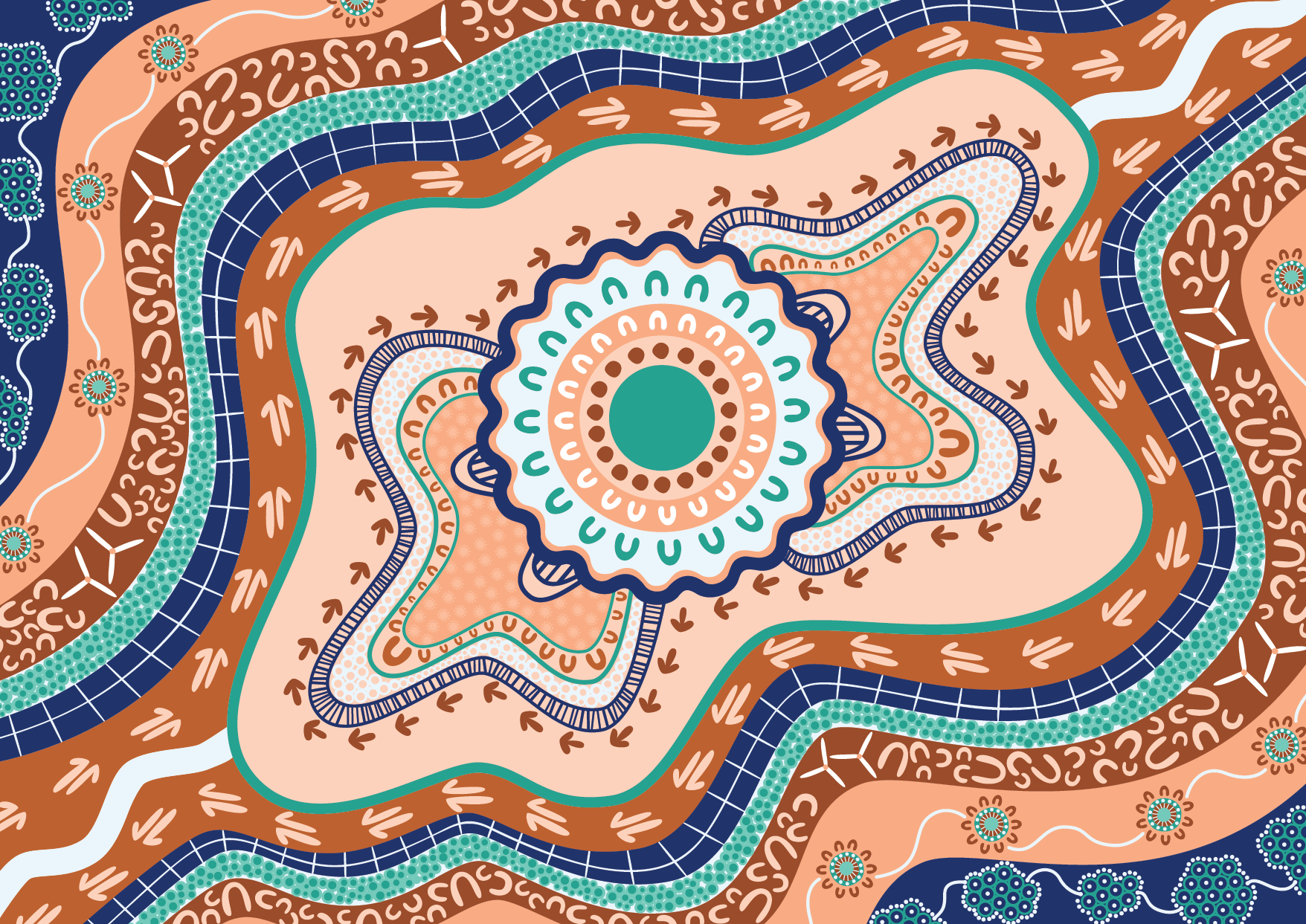First Nations
RECONCILIATION ACTION PLAN
We were honoured to have Leslie McLeod, a respected Yuin, Dharawal and Ngarigo Custodian and loreman, deliver a Welcome to Country for Spark Renewables.
Our ‘Reflect’ Reconciliation Action Plan (RAP) has been endorsed by Reconciliation Australia.
We are particularly proud of the artwork created for Spark Renewables by Wodi Wodi and Walbunja artist Lauren Henry and Biripi artist Brittany Cochrane as depicted above (copyright retained by Yirra Miya). Each element in the artwork layer holds a specific meaning for Spark Renewables. Can you spot the wind turbines and solar panels?
Through the depiction of people in their yarning circles, wind turbines, solar panels, emu tracks, meeting places and Country, the artwork tells a story of Spark Renewables and its role in up-skilling local community members to provide job opportunities and training to positively impact and give back to community for sharing their knowledge.
The RAP can be viewed here.
OUR COMMITMENT TO FIRST NATIONS PEOPLE
Spark Renewables is committed to engaging First Nations-owned businesses and employees in its renewable energy projects wherever possible. In this regard we measure the impact on local employment and investment at our projects. Where possible, we prefer to enter into long-term agreements, which give certainty of support to funding recipients, reducing administrative burden and freeing up energy and resources to deliver programs that span multiple years.
We are committed to implementing a First Nations participation plan for each of our projects, targeted at actively identifying opportunities to provide employment, on the job training, and skills development for First Nations people.
We are proud of our track record in this respect, with 25% of the mechanical workforce engaged in the construction of Bomen Solar Farm identifying as Aboriginal or Torres Strait Islander. The skills acquired at Bomen Solar Farm are transferrable to other projects, providing longer-term job opportunities.
For our development stage projects we work directly, and with our partners, to identify local organisations supporting the procurement of labour, goods and services from local Aboriginal people. Through these communications channels we can identify prospective opportunities ahead of time, discuss the way in which these opportunities can be converted, and plan and train for potential opportunities in advance.

Early consultation
Engaging with the Traditional Owners and Custodians of the land from the early stages of each of our projects, promotes and enhances our understanding First Nations people's local connection to land, allows us to design our projects with those considerations in mind, and gives us the insight needed to remain culturally aware at all times.
At Bomen Solar Farm this resulted in us engaging a Wiradjuri Elder to conduct a traditional smoking ceremony, which is an ancient custom to ward off unwanted spirits from the people and the land. The burning of native plants emits smoke, which has cleansing properties.
As a part of the development application process, we undertake Aboriginal Cultural Heritage Assessments to investigate the potential impacts of a proposed project on Aboriginal cultural heritage and the appropriate measures to be taken.


